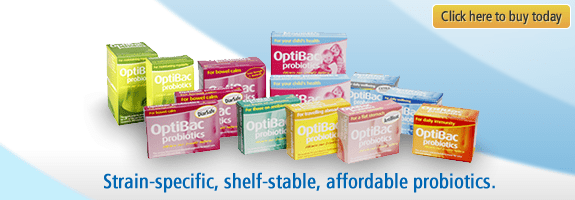Placing your first order? Use the code FIRST10 for 10% off on the checkout page.
Placing your first order? Use the code FIRST10 for 10% off on the checkout page.

Human Strain Probiotics - Important?
The following article was kindly provided to us by Optibac Probiotics
What are human strains? Does OptiBac Probiotics use human strains?
When discussing probiotics, the term “human strains” is a rather vague one. It typically refers to a probiotic strain that is derived from the human body.
The scientific definition of a probiotic (Live microorganism which when administered in adequate amounts confers a health benefit on the host) does not stipulate that to be a probiotic the microbe must have a human origin, or be a “human strain”. Probiotics must be able to exert their benefits on the host through growth and/or activity in the human body (Collins et al., 1998; Morelli, 2000). It is therefore the action, and not the source of the probiotic microorganism that is a key factor in choosing a probiotic. The ability of a probiotic strain to remain viable at the target site and to be effective in the human gut should always be verified and tested.
There are in fact many examples of effective probiotic strains which are not recognised as normal residents of the human gastrointestinal tract. For example, no strain of Saccharomyces boulardii could be described as a “human strain”, and yet this species has been shown in numerous clinical trials[1] to benefit human consumers.
Are human strains superior?
There is absolutely no existing scientific evidence that human strains are more capable of binding than non human strains. As “human strains” tend to come from the human faeces, this fact in itself acts as evidence of their capability to survive intestinal transit; a key factor when considering a good probiotic. It does not, however, provide evidence that they can adhere to or colonize the human gut more effectively than a strain which is not considered to be of human origin. At OptiBac we do not therefore consider the the question of “human strain” to be a relevant criterion for selecting an effective probiotic. However, for those of you who are still curious, here is a list of our probiotic strains and their specific origins:
- Dairy Origin:
- Lactobacillus acidophilus Rosell-52
- Lactobacillus casei Rosell-215
- Lactobacillus paracasei Lpc-37
- Lactobacillus rhamnosus Rosell-11
- Lactococcus lactis Rosell-1058
- Bifidobacterium bifidum Rosell-175
- Human Origin:
- Lactobacillus acidophilus NCFM®
- Lactobacillus acidophilus UBLA 34
- Bifidobacterium bifidum Bb-02
- Bifidobacterium bifidum Rosell-71
- Bifidobacterium breve Rosell-70
- Bifidobacterium breve UBBBr-01
- Bifidobacterium infantis Rosell-33
- Bifidobacterium infantis UBBI-01
- Bifidobacterium lactis Bi-07
- Bifidobacterium lactis Bl-04
- Bifidobacterium longum UBBL 64
- Fruit Origin
Dairy Free?
For those concerned about dairy sensitivities, some of the OptiBac range may contain small traces of dairy and are therefore not recommended for vegans or those who are severely allergic to dairy. However we do recommend the whole range for those who are lactose intolerant, as the amount of dairy is negligible, and probiotics aid the digestion of lactose.
What is a probiotic "strain"? Click here for more info
Notes:
1. McFarland, L. V. & Bernasconi, P. (1993) Saccharomyces boulardii: A review of an innovative biotherapeutic agent. Microbial Ecology in Health and Disease; Vol. 6. pp. 157-171.


